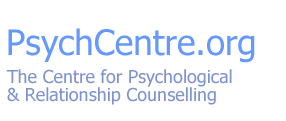Contact us
How do I contact you?
We have locations at Preston, Mill Park and Northcote.
For all enquiries please call 9495 1374. |
|
|
Post Traumatic Stress Disorder
On this page: What is Post Traumatic Stress Disorder? | What is the impact of Post Traumatic Stress Disorder? | What is the treatment for Post Traumatic Stress Disorder?
What is Post Traumatic Stress Disorder?
Post Traumatic Stress Disorder, or PTSD, can occur after the experience of a terrifying trauma which is outside the range of usual experience. The events most commonly associated with the development of PTSD include combat experience, natural disasters, industrial accidents, automobile accidents and other threats to personal safety including rape or assault. Post Traumatic Stress Disorder can occur after a direct experience, or after learning of the death or serious threat to a family member or loved one.
The symptoms of PTSD fall within three major groups. First, people with PTSD persistently re-experience the traumatic event in the form of images, dreams or flashbacks where the person relives the experience. Second, people with PTSD try to avoid reminders of the trauma, including the site of the experience, and to feel that there is a general numbing in their emotional responsiveness. Finally people who have experienced a trauma often experience increased arousal, for example they have difficulty falling asleep, they tend to be more angry or irritable than usual and have difficulty concentrating.
What is the impact of Post Traumatic Stress Disorder?
Post Traumatic Stress Disorder has a significant impact on the person. Frequently the symptoms of PTSD interfere with interpersonal relationships, both friendships and relationships with family members and spouses. Marital conflict is common, as are occupational or academic problems.
People with PTSD are also at risk of developing other anxiety problems, such as Panic Disorder, Social Phobia, Obsessive Compulsive Disorder and Specific Phobias. Depression is associated with PTSD, as is increased use of substances, probably as a means of coping with symptoms.
What is the treatment for Post Traumatic Stress Disorder?
Post Traumatic Stress Disorder can occur after a wide range of stressful experiences. As a result treatment varies depending on the type of trauma a person has experienced, and the particular problems a person is experiencing. Work with a qualified and experienced Psychologist to overcome difficulties is advised.
Taken from Andrews, G., Crino, R., Hunt, C., Lampe, L. & Page, A. (1994). The Treatment of Anxiety Disorders: Clinician’s Guide and Patient Manuals. Cambridge University Press.
 Back to home page :: Back to home page ::
|



